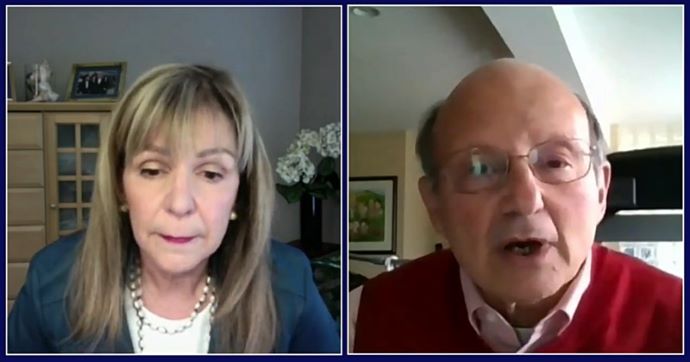Businesses can do well by doing good, says PR pioneer Novelli
As social marketing pioneer Bill Novelli tells it, the corporate world has a unique role to play in combating today’s challenges — and businesses that step up to the plate are likely to reap financial rewards.
“I call it doing well by doing good,” Novelli said during a virtual National Press Club Book Rap conversation on Jan. 29. “When they can both create financial and social value, that’s the sweet spot.”
Businesses that do so will appeal to the next generation of customers, said Novelli, founder of the Business for Impact program at Georgetown University's McDonough School of Business.
“It is the right thing to do, but at the same time, they know that the millennials, who are key consumers for them, want to know that the people who make these products are being treated fairly,” Novelli said. “So you have a combination here of enlightened self-interest and good business.”

Novelli’s big picture approach is the premise of his new book, Good Business: The Talk, Fight, Win Way to Change the World, but it has also been a central theme throughout Novelli’s career.
After leaving a traditional marketing position in the early 70s, Novelli co-founded the public relations giant Porter Novelli with the goal of marketing ideas and behaviors rather than just products.
“The idea in marketing basically is to work on the consumer, to work on the target audience," said Novelli, former chief executive of AARP. "What I came to realize was that that's not enough. We have to also work for a normative change on social norms and expectations. And if we can do that, we can actually change individual behavior faster.”
When asked by Club board member Debra Silimeo how the private sector can be trusted to do the right thing when it is oftentimes seen as the root of major systemic problems, most notably climate change, Novelli countered that a unified response that includes businesses is key.
“Today’s big, tough, social and environmental issues are way too big for any sector to solve alone,” he said. “I've talked to a number of oil, gas companies and I think that they are very pragmatic about this and they see the writing on the wall.”
“What we have to figure out is how to work together. We can talk, we can fight, but if we work together, we can make a difference,” Novelli added. “I think we need the business community at the table.”
This level of coordination, Novelli acknowledged, is oftentimes easier said than done, especially in an era where just about anything can be politicized.
Novelli zeroed in on the current rollout of the COVID-19 vaccine, which has been hindered by partisan debates, public skepticism and misinformation.
“We have to realize that this mess we're in is cyclical,” he said. “This isn't the first time in American history that this has happened. We've had tough times before. We’ve been isolationists, we’ve been anti-immigrant, we've had these fights in our history.”
The way forward, Novelli argued, may be as simple as fostering a little more bipartisanship.
“There are people who are in Congress today and in state government today who are willing to cross the aisle,” he said. “And what we need to do I think is to give these people encouragement and help them so that they don't get destroyed for making bipartisan choices.”
